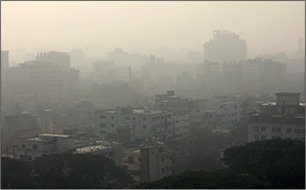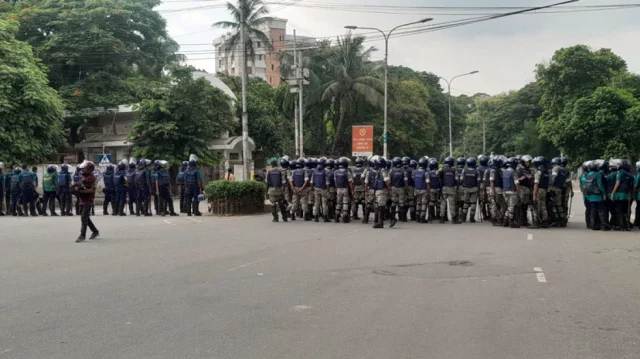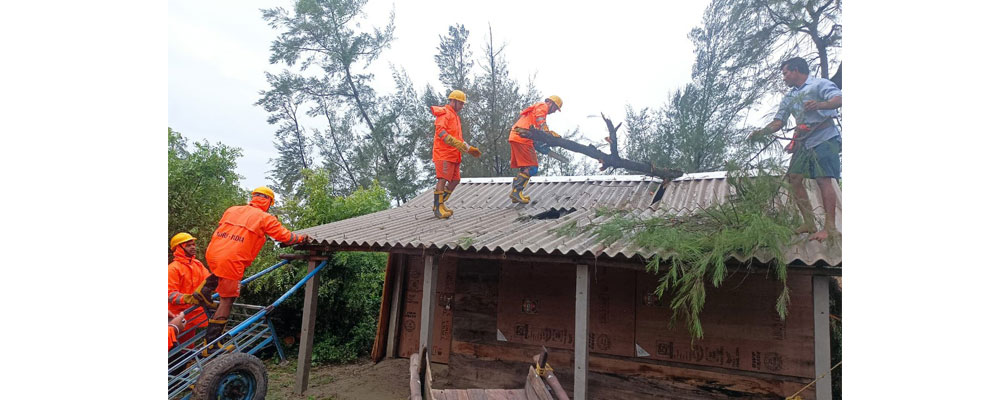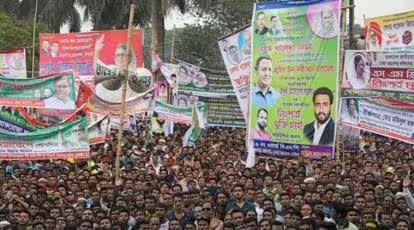Severe Smog Engulfs Capitals of India and Bangladesh, Prompting Health Concerns

Dhaka: The capitals of India and Bangladesh are currently grappling with alarming levels of toxic smog, causing widespread health concerns and disruptions. Dhaka, in particular, briefly earned the dubious distinction of being the world’s most polluted city on Wednesday, recording a “hazardous” air quality index (AQI) level of 325, according to Swiss climate monitor IQAir.
Dhaka, with a population exceeding 20 million, has experienced a deteriorating air quality in recent years, largely attributed to the overuse of fossil fuels. Residents, such as Rafiq Mondal, a rickshaw driver, expressed the health toll they face, including asthma, fever, and allergies. Despite authorities in Dhaka attempting to mitigate the situation by spraying water on the streets, residents are demanding more comprehensive measures.
“The air pollution is taking its toll. With all the mega projects like the metro rail overhead, there is a lot of construction material everywhere… Measures must be taken more seriously,” emphasized Wasim Akhter, a concerned resident.
The World Bank has urged Bangladesh to collaborate more closely with its South Asian neighbors to address the escalating air pollution crisis. A World Bank report revealed that air pollution, constituting a mixture of solid particles, liquid droplets, and gases, is responsible for one-fifth of annual deaths in the country.
In New Delhi, a city accustomed to ranking high on the world’s most polluted list, the Central Pollution Control Board reported an AQI of 378 on Wednesday, categorizing it as “very poor.” The dense fog in the Indian capital and northern regions led to the disruption of over 100 flights and rail services, with visibility dropping to a mere 50 meters in some areas.
The weather department highlighted that the dense fog contains particulate matter and other pollutants, warning of potential health impacts on the tens of millions of residents in New Delhi. Similar weather conditions were reported in other parts of north India, including the states of Punjab, Uttar Pradesh, and Haryana, exacerbating the air quality crisis in the region. As both nations grapple with this environmental challenge, urgent and collaborative efforts are needed to safeguard the health and well-being of their populations.



















Facebook Comments